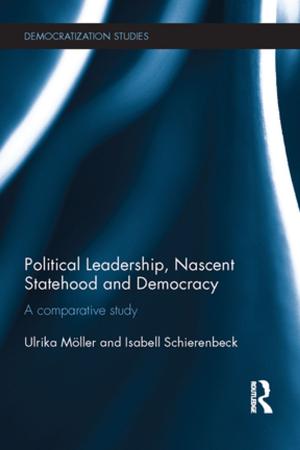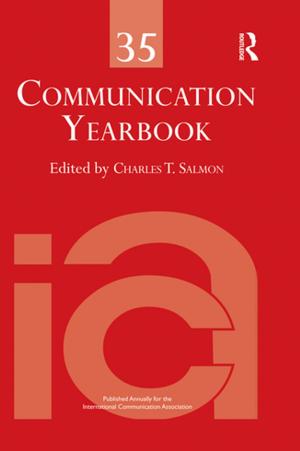The Scottish Parliament
A Scandinavian-Style Assembly?
Nonfiction, Social & Cultural Studies, Political Science| Author: | David Arter | ISBN: | 9781135768751 |
| Publisher: | Taylor and Francis | Publication: | June 1, 2004 |
| Imprint: | Routledge | Language: | English |
| Author: | David Arter |
| ISBN: | 9781135768751 |
| Publisher: | Taylor and Francis |
| Publication: | June 1, 2004 |
| Imprint: | Routledge |
| Language: | English |
This book is unique in analysing the new Scottish Parliament from a systematically comparative perspective. Its basic premise is that since devolution in 1999 Scotland can be considered a Scandinavian-style democracy with several features of a Scandinavian-style parliament. The basic research question, therefore, is: 'Has the Scottish Parliament in its first four-year term manifested a Scandinavian-style politics in the sense that there has been a high incidence of inter-party negotiation within Parliament?'
The architects of the Scottish Parliament saw the committees as the motor of a 'new politics' and gave them extensive powers. Outside Austria, only the Swedish and Icelandic committees have comparable powers. Accordingly, the study sets out to describe and analyse the workings of the committees in the Scottish, Swedish and Icelandic Parliaments. The concluding chapter also discusses the operation of the Danish, Finnish and Norwegian committees.
This book is unique in analysing the new Scottish Parliament from a systematically comparative perspective. Its basic premise is that since devolution in 1999 Scotland can be considered a Scandinavian-style democracy with several features of a Scandinavian-style parliament. The basic research question, therefore, is: 'Has the Scottish Parliament in its first four-year term manifested a Scandinavian-style politics in the sense that there has been a high incidence of inter-party negotiation within Parliament?'
The architects of the Scottish Parliament saw the committees as the motor of a 'new politics' and gave them extensive powers. Outside Austria, only the Swedish and Icelandic committees have comparable powers. Accordingly, the study sets out to describe and analyse the workings of the committees in the Scottish, Swedish and Icelandic Parliaments. The concluding chapter also discusses the operation of the Danish, Finnish and Norwegian committees.















